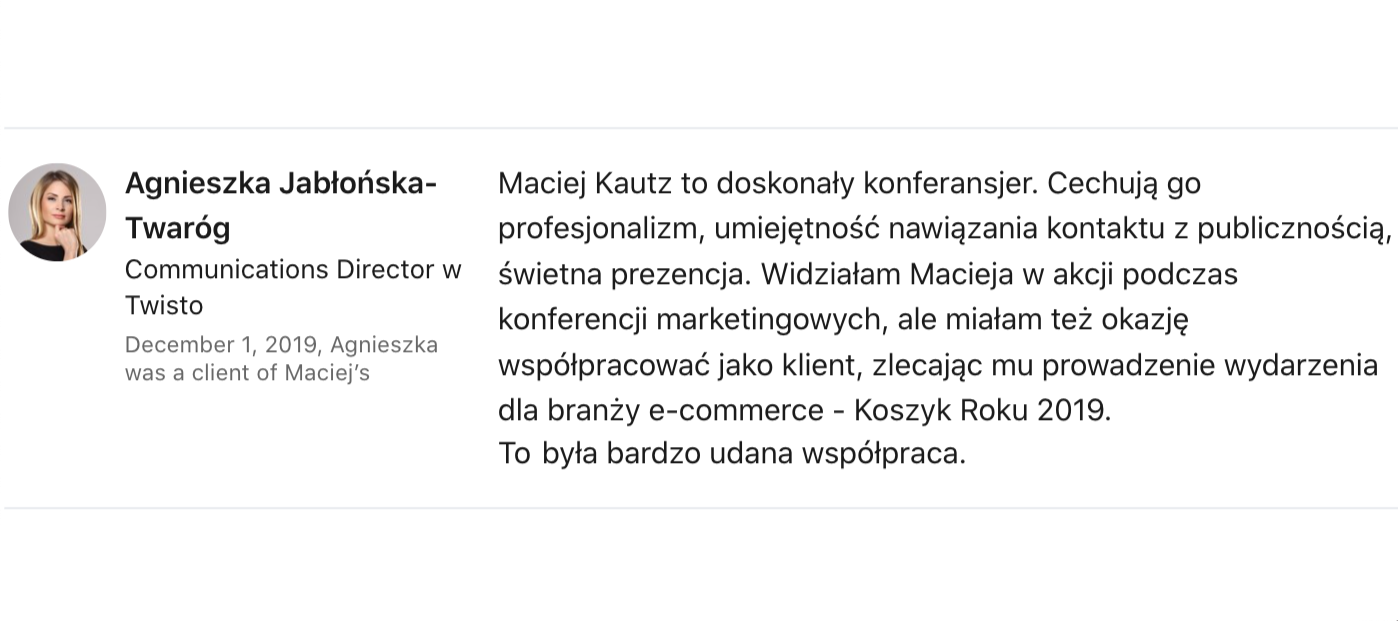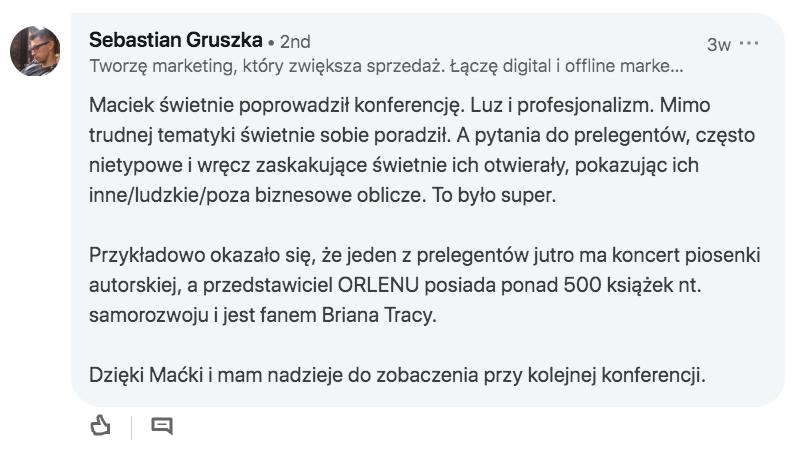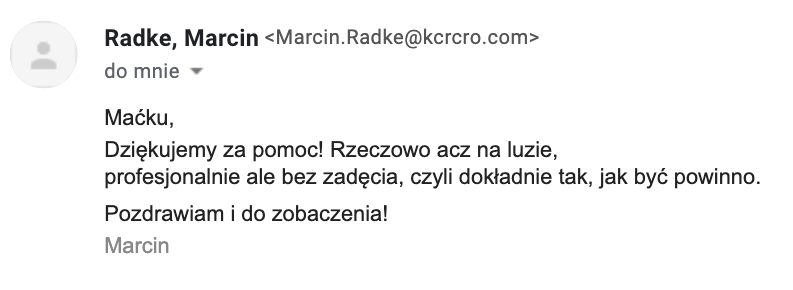Imagine you have a conference coming up. The guest-list, the venue, all the little things that need to be planned are almost in place. You’ve got a great event planner. But isn’t there something else that you need? Well, to make an event successful, you need the right conference host or moderator. And this is where I step in.
With my experience on live radio and television, as well as hosting conferences, galas and awards shows, I can guide you on how to deliver a memorable event using authentic interactions and engagement.
Although it is true that the food, venue, main content and guest speakers all matter, if the conversations at an event are not engaging, the audience will forget the event. This is even more true of virtual events since there are so many happening regularly. Not to mention platforms like Netflix or HBO Max which deliver their content in a similar manner and so there are many choices for viewers. So, it becomes even more necessary to create an impactful and meaningful event. You have to involve everyone—not just the performers or speakers, but the attendees themselves.
This is what I specifically work with. I help create genuine and meaningful interactions between the speakers and the guests. As I have learnt, the best events are born not from a script but from taking an active interest in what’s unfolding every moment. Whether your event is in-person or virtual, you can count on me to bring my expertise in hosting and event strategy to ensure that participants feel welcome and engaged during the event.
Situations are fluid. No matter what you plan, especially in events, you can be certain that something unexpected will arise. I have witnessed many unforeseen events— a well-known singer arriving an hour late to her own concert, an electrical power failure that left acrobats suspended from their trapezes, Berlin police entering a dancefloor at 10:00 pm to enforce a noise ordinance! Apart from their unexpected nature, each of these situations had one other thing in common— all the guests remember them with a smile. What’s critical to handling unexpected situations is an immediate, open and honest response and of course, some empathy.
I provide detailed consultation which involves research, ideas, and more on what you can do to ensure your event is a success.
I asked Damian Haftkiewicz of Stereomatic, who has been producing events for 12 years, about it.
“For me, the event host is the event’s conductor. He is in tune with the organiser’s intentions while ensuring the attendees are engaged and feel welcomed. The event host informs about the points of the program, watches over time, skillfully comments on the development of events. It helps to connect the event, industry and speakers– and an event host does that.”
How should you introduce your speakers in such a manner that they are not offended by the order of announcement? What can you do to ensure that avoidable technological glitches stay avoided? How can you create conversation and natural flow so that your event leaves its impression on those attending? These are just a few of the nuanced and important factors that I help with as an event strategist.
Fot. Bartosz Śrama
Have you ever spent the whole day at university, from morning till evening? If you have, you know that although the first part can be interesting, it can become tiring soon. Sometime into the day, a person has to at least stretch their legs and have a change of scenery to feel alert and awake.
Therefore, when planning talks on a complicated subject, make sure you give the audience a break between them. They can rest during a coffee break or listen to a “lighter” point of the program, such as a casual conversation between two experts or a 10-minute violinist’s performance.
Do not be afraid of new solutions. Your guests will appreciate that they do not have to get bored or feel drained from over-concentrating.
Before you send out your event invites
As an event and conference host, I have been seeing content-packed events for years.
Although it looks great on paper to have a conference from 9:00 to 18:00, it will not necessarily be experienced as great.
If the presentations are long and we do not engage the participants enough, they will quietly find the door. Or worse in a way, be mentally checked out. Ask them about the event a few weeks later and they will likely not remember much
Please note that the hall is often full at the beginning of a congress, while the first drop occurs after the lunch break, and after the second coffee, the audience thins out even more.
Therefore when it comes to event strategy, I pay a lot of attention to a well-formatted agenda. I suggest the same to organizers. Sometimes, however, our hands are tied. But even then, a good emcee will find a solution, which is about meeting what comes up in a moment.
What do I do when the agenda is too crowded?
As the host of the conference, I do my best to keep the participants interested. So when a presentation is dense, I relieve tension by making associations, sharing an anecdote or involving the panellist or audience to share something.
With the right question, I have seen an expert speaker turn into an enthusiastic participant. Spontaneous interactions are fun. They make the speakers interact and help the audience to stay away from their smartphones.
Image by Agata Dąbrowska, www.agencja24mm.pl
Do your guests want a conference overflowing with knowledge, or do they want more time for behind-the-scenes conversations and integrating what they have heard?
I have repeatedly conducted events during which 5 or 10 minutes are scheduled for a coffee break. After hours-long panels, such short breaks cannot succeed!
Women know this the best, because it is outside the women’s toilets that queues form like at the box office before a long weekend. Too short breaks – though they look great on paper – end in mass returns of the audience during someone’s presentation.
The speaker is distracted and the audience embarrassed.
I answer before you ask– no, 30 minutes is not a reasonable time for lunch break.
We live in a time when you can find gurus and leaders easily. So before you invest in them for your event, watch the speaker’s speeches on YouTube. How do they present themselves there? Do they seem reliable? Can they hold your attention?
It is also a good idea to just personally ask people from the event and training industry for their opinion on the speaker.
I have hosted many conferences where all the spotlight has been on speakers, especially if they are famous.
But I myself always treat everyone equally and encourage others to do the same.
Let’s stop over glorifying speakers. Taking a selfie with your favorite speaker is OK, but it’s even better to take real, useful knowledge from them or share a moment of real connection. Therefore, I believe that the times of unilateral communication should finally end.
Give your conference attendees a chance to ask the speaker a question. Or how about adding 5 minutes to the agenda after each speaker’s presentation for questions from the audience? Attendees can ask them in the application or traditionally, by raising their hand. In either case, a competent emcee can skillfully separate the grain from the chaff.
Preferably during one of the longer breaks, and not immediately after their presentation, ask the speakers to set aside some time for audience interaction. It’s best to arrange a comfortable area where one can – perhaps at coffee tables – talk to the speaker one is interested in.
The most challenging participants are often opinionated leaders – during a lunch break or in a conference foyer they can comment on any part of the conference– from shortcomings of the organizer to the content of the event. And their opinion can become the dominant one and create long conversations. To avoid this, take care of time.
Everyone has their own plans, including the speakers who may not appreciate their presentations being pushed back by these small glitches. Similarly, when a speaker is presenting, make sure that you time them and the event host gently reminds and stops the presentation at its designated time.
If you want to save on something, it certainly should not be your tech equipment. A common mistake I see at seminars and conferences organized in hotels is relying on hotel equipment.
The sound system in these places is often of poor quality or simply poorly configured. For example, turning on two microphones at the same time causes unbearable feedback. While at other times the speaker, in order to find a place where the microphone does not make strange noises, has to move around the room as if doing a slow dance.
To avoid these kinds of interruptions, invest in good equipment and test everything well before the event.
Often you can see that speakers are interested in only giving a (really great) presentation and issuing an invoice. When an event is organized with this approach, what happens?




